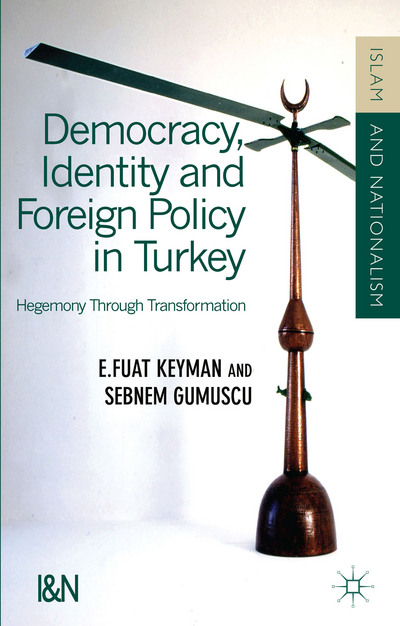
E.Fuat Keyman, Sabancı University
Şebnem Gümüşçü, Middlebury College
Palgrave Macmillan, 2014
The recent history of Turkey is dominated by the country's transformation into a modern democracy. Over the past few years Turkey has been increasingly recognised as a nation of economic, political and cultural significance as well as being a vital political connection between Europe and the Middle East. In this compelling volume, Professor Keyman and Dr. Gumüsçu put democratisation in Turkey under the microscope with an especial focus on recent transformations under the Justice and Development Party (AKP). Accordingly, it explores to what extent Turkey's transformation under the AKP has led to democratic consolidation as well as asking if there is a disconnect between economic, cultural, and urban transformation, on the one hand, and democratic consolidation on the other? Furthermore, this book also takes the opportunity to explore several issues that have a direct effect on the consolidation of Turkish democracy such as globalization, foreign policy activism, the kurdish question, religious governance and civil society. By critically analyzing the dialectic between domestic transformations and global/regional dynamics, the book also discusses the ways in which Turkish transformation is affected by the Arab uprisings as well as how Turkey may inspire these countries.
Table of Contents
1. Introduction
2. Turkey's Transformation
3. Constructing Hegemony: the AKP Rule
4. AKP's Hegemony and Democratic Consolidation
5. Turkey's Proactive Foreign Policy under the AKP
6. Turkish Foreign Policy in the aftermath of the Arab Uprisings
7. The AKP, Arab Uprisings and the Kurdish Question
8. Secularism, Democracy and Identity
9. Civil Society and Democratic Consolidation
10. Conclusion: Turkey at the Crossroads: Democratization through the Strong EU Anchor

No comments:
Post a Comment